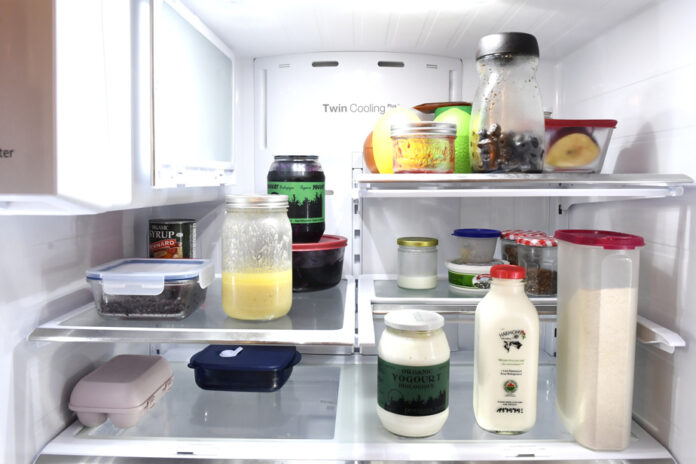With the price of food, it hurts even more to throw away food, but those who have suffered a breakdown for more than six hours will have to resign themselves to it. What can we keep? What to compost?
Once a breakdown has lasted more than six hours, you must sort it out. You can keep firm cheeses in blocks (cheddar, Swiss, mozzarella, etc.), parmesan, processed cheese, butter, margarine and containers of yogurt that have not been opened. Whole fresh fruits and vegetables, pasteurized fruit juice remain edible, as do commercial jams, jellies and mayonnaise.
On the other hand, after a breakdown of more than six hours, you must throw away milk, infant formula, cream, soft cheese, cream cheese, yogurts whose containers are open. Also discard open containers of vegetable juice, unpasteurized fruit juice, cooked vegetables or prepared raw vegetables. Also do not eat salads containing meat, poultry or fish, pasta, cooked vegetables, coleslaw, as well as cooked, raw or cooked dishes made from poultry meat or fish.
Also to be set aside: cooked pasta, pasta sauces, fresh pasta, soups and sauces made with gravy, cream soups, shell eggs, liquid eggs, dishes and desserts made with of egg (quiche, pastry creams), homemade mayonnaise, tartar sauce, horseradish, oyster sauce and garlic in oil.
And the freezer? Generally speaking, “frozen foods can be stored for 48 hours in a freezer that is in good condition and filled to capacity, as long as it has not been closed. In a half-filled freezer, the preservation time is 24 hours, ”indicates the Quebec government in its instructions issued by its health specialists.
As for the freezer unit of a refrigerator, its ability to keep food frozen is much less. The defrosting of food in the event of a breakdown is therefore faster, specifies the government of Quebec.
Once the electricity has been restored, it is important to check the defrosting status of the food. If food is partially thawed with frost on the surface of its packaging, it can be refrozen if the center of the food is still hard.
Thawed raw foods whose temperature has remained at 4°C or less can be cooked immediately for quick consumption or refrozen once cooked.
Fully thawed foods such as hard cheese blocks, baked goods (bread, muffins, bread dough, plain cakes, fruit pies, cookies), pasteurized fruit juices and fruit may be frozen. refrozen if containers are intact.
On the other hand, meat, poultry, fish and seafood, dairy products, eggs, prepared meals containing these raw or cooked foods must be discarded if they could not be kept at a temperature of 4 degrees or less.


















